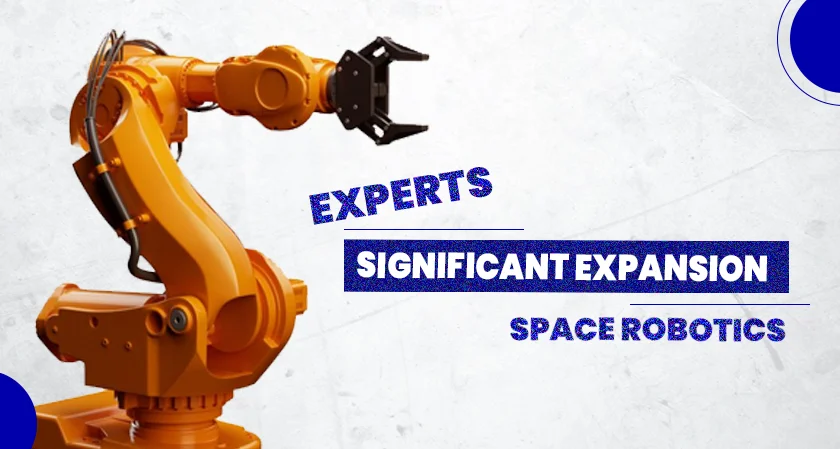Home Industry Space Experts foresee significant ex...
Experts foresee significant expansion in the space robotics industry
Space

Business Fortune
13 June, 2024
GlobalData, an international data and analytics organization, has predicted "explosive growth" for the space robot industry.
Technology Foresights, the company's innovation intelligence platform, was used to create this forecast. Designing and making robots to work in space is called space robotics.
In the last three years, the space robotics industry has seen the entry of over 40 companies. They have drawn venture capital investments totaling more than $200 million between them. These businesses focus on advanced space robotics for various tasks, including servicing satellites in orbit, refueling spacecraft, inspecting spacecraft in orbit, and collecting space debris. Each of these technologies will improve space missions' sustainability and reach considerably.
It's exciting news for the space robotics business that new players are emerging. Companies such as Gitai, Astrobotics, and the Chinese-based Aerospace New Long March EV Technology are attracting considerable attention with their advanced applications of space robots. The Japanese startup Astroscale, which focuses on clearing space debris, had a successful launch on the Tokyo Stock Exchange. Its share prices increased by 51% in the first week of June 2024, showing growing confidence in this technology. Advances in robotics may lead to a groundbreaking revolution in space technology, bringing science fiction to life.
The space sector was still dominated by well-established companies with a long history. Canada's MDA was in the lead, with experience from more than 450 space missions and 46 published patents. US company Maxar ranked second with 16 published patents, behind European company Airbus with 14. NASA ranked sixth with eight patents published.
The primary space agencies that support the development of space robotics technologies are NASA and JAXA. Thus, in January, JAXA successfully landed its robotic rover, SORA-Q, on the Moon as part of its Moon Sniper mission. In order to construct solar power arrays and shelters on the Moon and Mars, NASA is building autonomous robots.


































